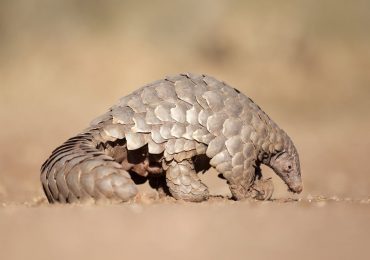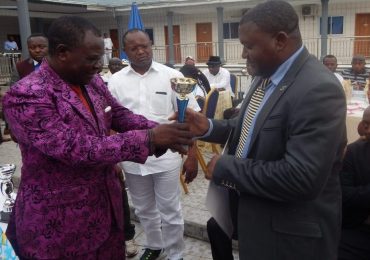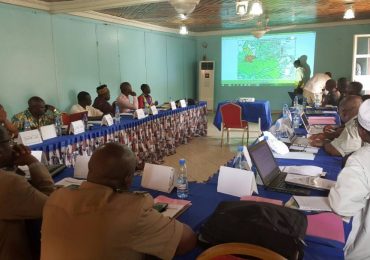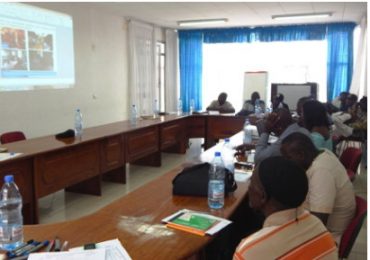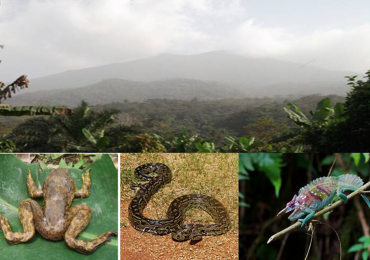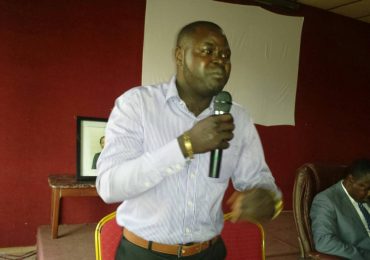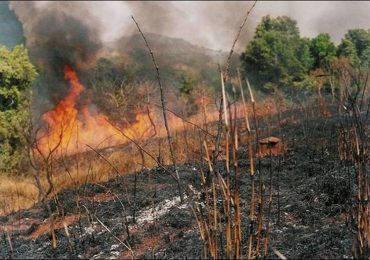They wanted to eat her but she was too small. So they sold her off.
By Regina F. Leke
The Cross River gorilla was rescued by an American missionary family from hunters more than two decades ago in Mamfe in the South West Region. They named her ‘Nyango’, and now she is the only confirmed Cross River Gorilla in captivity in the world. The 27-year-old lives at the Limbe Wildlife Centre, also in the South West.
In the 1990s and early 2000, Nyango used to be the leader of the group at the Centre, but when the male Western Lowland gorillas become more sexually active, they took over the group.
Nyango was orphaned when hunters killed her parents in a forest in Mamfe. The hunters wanted to sell her as a pet to a foreigner because she was too small to be eaten. They came across an American missionary family that lived in Mamfe at the time. After interrogating the hunters on how they got the young gorilla, the missionaries realized that the ape was likely to be killed if they did not buy her. The family bought the ape and kept her for almost two weeks before deciding to take her to the Limbe Wildlife Centre in 1992. The only gorilla at the Centre then, Nyango became so lonely, but with the help of Wildlife officials, the Centre later rescued some Western Lowland gorillas from different parts of Cameroon including the South, East, Centre and South West regions. They started playing with Nyango.
After spending about 25 years in captivity, Nyango has become an international figure for being the only confirmed case of a Cross River gorilla in captivity worldwide.
With a population less than 300 in the wild, the Cross River gorilla is the most threatened sub-species of gorilla.
“Cross River gorillas are not just critically endangered, but they are found only in Cameroon and Nigeria and Cameroon has over 80% of the Cross River gorilla range. Being the only known case of Cross River gorilla in captivity, any researcher who wants to conduct studies on the behavior of the sub-species and interaction with other gorillas must only come to Cameroon and the Centre in particular to meet her. Since she was brought here, we have had hundreds of visitors from all over the world who came just to see her given that it is very difficult to encounter them in the forest,” said Glenn Motumba, Education Officer at the zoo.
Eat, Play and Sleep
On a typical day, Nyango wakes up as early as 4:30. She, just like every other animal, is checked. Then the Centre’s keepers hide food on the playground so that the gorillas search for it, given their intelligent and adventurous nature. While Nyango and her pals forage for the food, the keepers clean up their sleeping house. Afromomum – a wild ginger – makes up 60% of gorilla diet. Nyango also enjoys cucumber, pineapples, mangoes, banana, pawpaw and has a special love for green beans.
It is not, however, all a bed of roses for Nyango.
“In 2012, she ingested some vegetables that affected her lungs and other internal systems making her stomach to swell. She was placed under intense medical care and as of 2014, despite her swollen stomach we can say Nyango is faring well. Gorillas can live up to 65 years and Nyango, being just 27, still has a long time to live. So we are doing everything possible to keep her alive,” the Education Officer explained.
The Education Officer also told Green Vision that for Nyango and the other 16 Western Lowland gorillas to cope at the Centre means a lot of hard work and money.
“We have just a normal structure with artificial climbing structures. They are active, social and intelligent animals. You must keep them active if not they become depressed. Gorillas have different enrichment activities and we try to add new ideas so that it does not become monotonous,” Motumba said.
Active, yes. Playful, yes. And Nyango is equally very sexually active.
“Just like any female gorilla Nyango became sexually active from 8 to 10 years while males become sexually active from 10 and 12 years,” said Motumba. However, The Green Vision learnt that Nyango cannot breed now because she has been put on contraceptives.
“Nyango is of breeding age, but we cannot allow her to breed with the other species. If she breeds with a male Western Lowland gorilla, the infant that will be formed will be a hybrid and this hybrid will be sterile. Nature has it that these two species should not meet reason why they are found in different geographical locations. They play together and it is difficult for us to stop them so we have placed Nyango on contraceptive,” Motumba further explained.
He said gorillas only meet when the female is on heat (two weeks), but because Nyango is on contraceptive, she cannot get on heat.
“When the females are on heat, that is when the male become attractive to the female,” said Motumba.
Back To The Wild Soon
The Green Vision gathered that Nyango will soon be released back into her natural environment. “We are working with other conservation organizations like WWF (World Wide Fund for Nature) and WCS (Wildlife Conservation Society) to re-introduce Nyango into the forest.
Meanwhile, some groups of Cross River gorillas have been identified around the Takamanda National Park and are currently being habituated. Habituation can take about five years. If one of these groups is habituated successfully, Nyango will be re-introduced into the forest with this group in two to three years time given that the programme is already getting into the third year.



